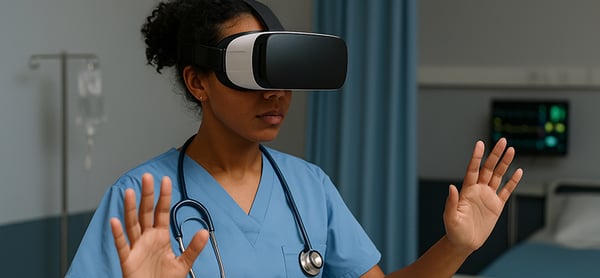Healthcare organizations increasingly emphasize empathy as a core value, investing in training programs that enhance understanding of patient and family experiences. While this focus on empathy represents important progress, a critical gap remains: empathy alone doesn't create the capability to respond effectively when that understanding is tested by difficult behaviors, escalating emotions, or...
Posts about Workplace Violence (4)
Blindsided by Crises—Are There Warning Signs? Podcast
“Blindsided by Crises? Are There Warning Signs or Do They Really Come “Out of the Blue”?” — Episode 29
Co-host: Marcus—former healthcare security director
Co-host: Natalie—nurse practitioner and clinical team leader
Subscribe to our podcast on Apple Podcasts
Making Respect Actionable: Leadership's Role in Communication Standards
"Treat everyone with respect" appears in virtually every healthcare organization's values statement. Yet this common aspiration often remains frustratingly abstract, with leaders struggling to translate this principle into concrete behaviors that can be taught, measured, and consistently reinforced.
The gap between aspirational respect and operational reality creates significant...
Conflict is a Systemic Issue—Here's How to Build a Systemic Solution
Healthcare organizations often treat workplace conflict as an interpersonal issue—something to be addressed through individual training, case-by-case interventions, or occasional policy reviews. This fragmented approach produces disappointing results because it fails to recognize a fundamental reality: Workplace conflict is a systemic issue requiring a systemic solution.
Just as healthcare has...
Ending Silence: Addressing Lateral Violence with Better Communication
While healthcare organizations increasingly recognize and address patient and visitor aggression, a more insidious form of workplace violence often remains unacknowledged: lateral violence between colleagues. This phenomenon—characterized by behaviors like bullying, sabotage, exclusion, and verbal attacks among peers—creates significant psychological harm while undermining team function, patient...
How a Respectful Culture Reduces Turnover & Improves Patient Outcomes
In today's challenging healthcare environment, organizations face twin challenges: unsustainable staff turnover rates and pressure to improve patient outcomes. While these challenges are often addressed through separate initiatives, forward-thinking healthcare systems are discovering a powerful common solution: creating a culture of respect that simultaneously addresses both retention and...
How to Redirect with Confidence — Podcast
“How to Redirect with Confidence” — Episode 28
Co-host: Marcus—former healthcare security director
Co-host: Natalie—nurse practitioner and clinical team leader
Subscribe to our podcast on Apple Podcasts
What Simulation-Based Conflict Training Can Teach Healthcare Systems
Healthcare has embraced simulation as a cornerstone of clinical education, using realistic scenarios to build critical thinking, procedural skills, and team coordination for situations ranging from cardiac arrests to surgical complications. Yet surprisingly few organizations apply these same powerful simulation methodologies to workplace violence prevention. Those that do are discovering that...
Onboarding for Safety: Teaching Conflict Skills from Day One
For new healthcare employees, the orientation period represents a crucial window for establishing expectations, building essential skills, and forming habits that will shape their entire career. Yet many organizations miss this opportunity when it comes to workplace violence prevention, introducing conflict management as an afterthought rather than a foundational competency. Forward-thinking...
Muscle Memory: The Key to Frontline Readiness in Crisis Scenarios
In high-stress situations, healthcare professionals don't rise to the level of their expectations—they fall to the level of their training. This reality explains why even well-informed staff may struggle to apply de-escalation techniques during actual crisis scenarios: knowledge alone is insufficient. To perform effectively under pressure, frontline staff need conflict management skills embedded...











